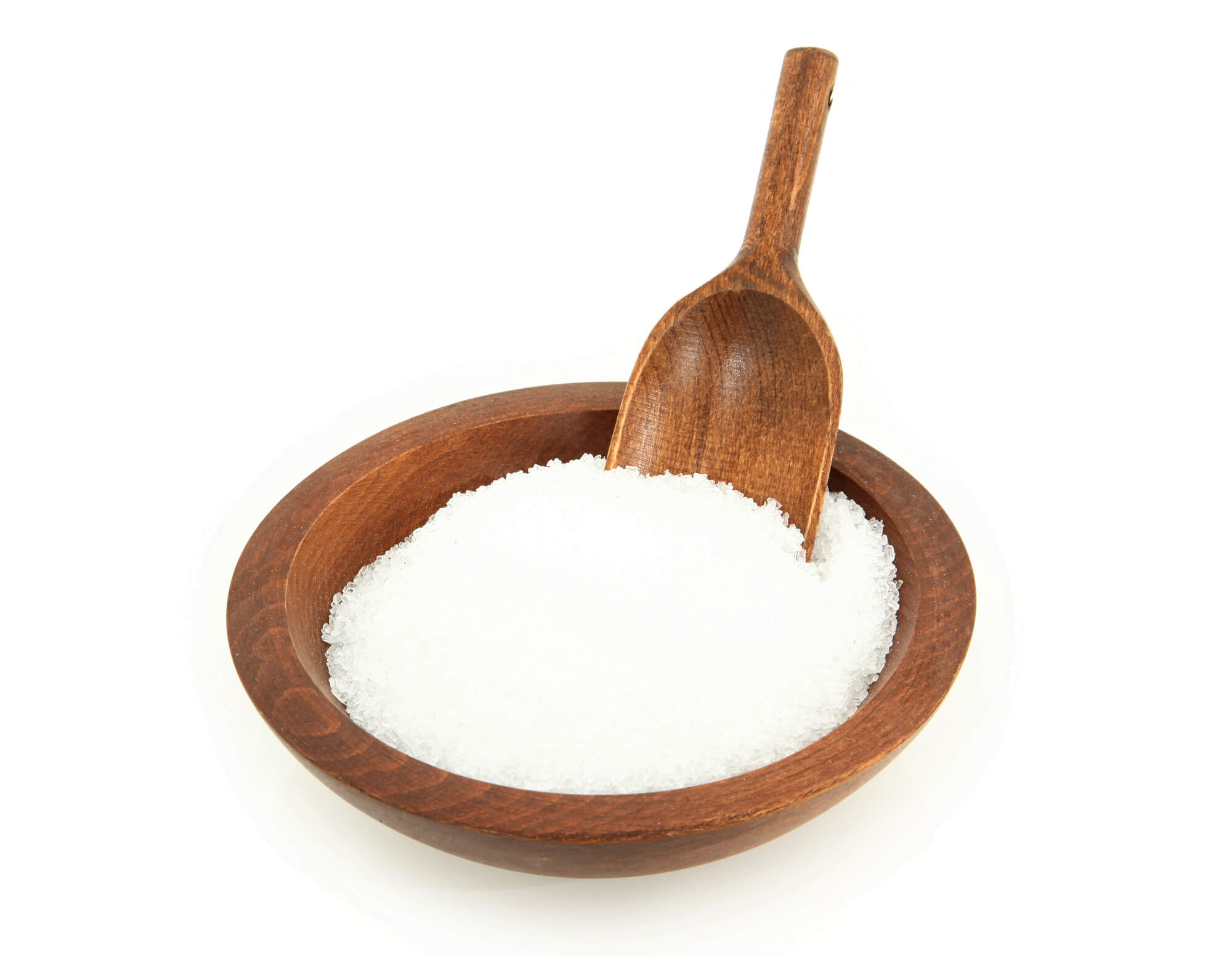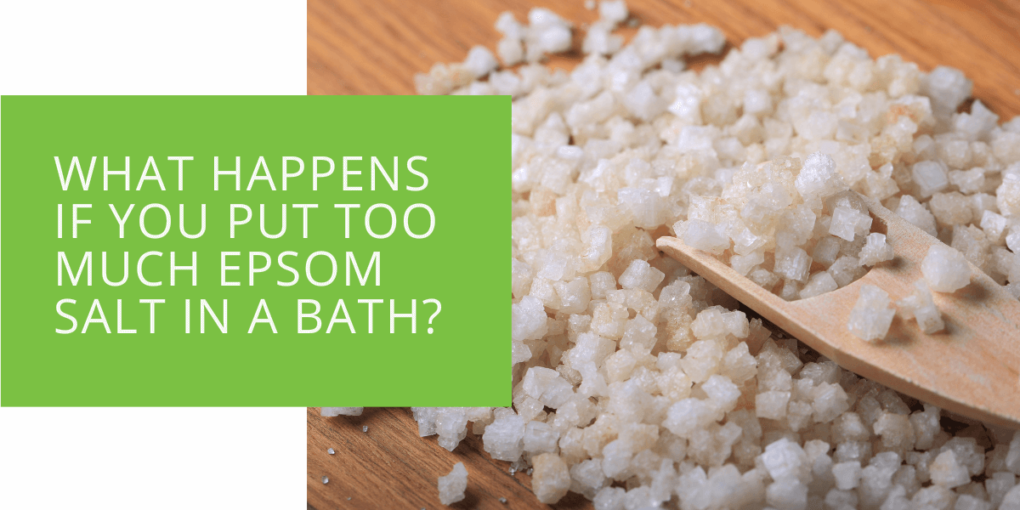What Happens If You Put Too Much Epsom Salt in a Bath?
If you're looking for a way to unwind after a long day, there's nothing quite like soaking in a warm bath. And if you want to take your relaxation to the next level, consider adding Epsom salt to your bathwater. Scientifically known as magnesium sulfate, Epsom salt has been used for centuries to treat a variety of ailments, from sore muscles to stress and anxiety. But what happens if you put too much Epsom salt in your bath? Is it possible to overdo it and experience unintended side effects?
In this e article, we'll delve deep into the world of Epsom salt and explore its many benefits. We'll also examine the potential risks of using too much Epsom salt in your bathwater and provide tips for enjoying its benefits safely and effectively. Whether you're a seasoned Epsom salt user or just curious about its potential benefits, this article has everything you need to know to make the most of your next soak. So sit back, relax, and let's explore the wonderful world of Epsom salt together.
Key Takeaways
- Excessive Epsom salt in a bath can lead to skin irritation, dryness, and even a laxative effect if ingested, emphasizing the importance of using the recommended dosage.
- Overusing Epsom salt may disrupt magnesium levels, potentially resulting in muscle cramps or irregular heartbeats, highlighting the need for moderation.
- To safely enjoy the benefits of Epsom salt baths, pay attention to your body's signals, follow guidelines, and consult with healthcare professionals if necessary.
The Power of Epsom Salt
Understanding the Uses and Benefits of Epsom Salt
Epsom salt is a naturally occurring mineral compound comprised of magnesium and sulfate. This unique combination offers many benefits when used in various applications, with magnesium playing a pivotal role in numerous bodily functions. These functions encompass muscle and nerve function, regulation of blood sugar levels, and support for overall bone health. On the other hand, sulfate contributes to detoxification processes and can improve skin health.
Soothing Sore Muscles and Aching Feet with Epsom Salt Baths
One of the most well-established uses of Epsom salt is its remarkable ability to aid in muscle relaxation and pain relief. When dissolved in warm water, Epsom salt facilitates the easing of muscle tension, making it an attractive option for individuals seeking post-workout recovery or simply looking to unwind after a long and tiring day on their feet.
How Epsom Salt Can Enhance Your Bathing Experience
Incorporating Epsom salt into your regular bathing routine can elevate your overall experience in the tub. Epsom salt can soften bathwater, resulting in a silky, luxurious feel on your skin. This particular attribute proves especially beneficial for individuals dealing with dry or sensitive skin.
Proper Dosage and Usage
Determining the Right Amount of Epsom Salt for Your Bath
The appropriate amount of Epsom salt to use in your bath hinges on several factors, including your body weight, the size of your bathtub, and your specific needs. As a general guideline, consider adding approximately one to two cups of Epsom salt to a standard-sized bathtub filled with warm water. Nevertheless, it is imperative to thoroughly read and follow the instructions provided on the product packaging. If you have any concerns or underlying health conditions, it is advisable to consult a healthcare professional for personalized guidance.
Tips for Incorporating Epsom Salt into Your Bathing Routine
Follow a simple protocol to ensure that Epsom salt dissolves effectively and evenly in your bathwater. Add the salt while the water is running, and take the time to stir the water thoroughly. This straightforward step helps prevent any concentrated salt from settling at the bottom of the tub, ensuring a consistent bath experience.
Maximizing the Benefits of Using Epsom Salt
Regular Epsom salt baths can contribute to maintaining healthy magnesium levels in your body. Additionally, this mineral compound has the potential to alleviate pain and reduce muscle soreness, making it a valuable addition to your relaxation regimen.

When "Too Much" Becomes a Concern
Signs and Symptoms of Overusing Epsom Salt in Your Bath
While Epsom salt baths offer numerous benefits, it is essential to be aware of the signs that you may have used an excessive amount of Epsom salt in your bath. These signs can include skin irritation, redness, or a burning sensation. Overuse can also lead to dry skin, as excessive Epsom salt can strip your skin of its natural oils. Furthermore, in rare cases, ingesting bathwater with a high Epsom salt concentration can act as a laxative, potentially resulting in digestive discomfort or diarrhea.
Potential Risks of Putting Excessive Epsom Salt in Your Bath
In addition to the immediate effects mentioned above, overusing Epsom salt in your bath can disrupt your body's magnesium levels. This may lead to unintended consequences such as muscle cramps, irregular heartbeat, or fluctuations in blood pressure. It is important to maintain a proper balance to avoid these potential risks.
How to Safely Correct an Epsom Salt Bath Overdose
If you find yourself in a situation where you have used too much Epsom salt in your bath and experience discomfort or irritation, taking prompt action is crucial. Start by rinsing off with fresh water to remove excess salt from your skin. In cases where you have ingested bathwater with a high Epsom salt concentration, drinking ample water can help dilute its effects. If symptoms persist or worsen, seek medical attention promptly to ensure your well-being.
Finding Balance and Enjoyment
Achieving Optimal Results with Epsom Salt Baths
To make the most of your Epsom salt baths, balancing enjoying the benefits and avoiding overuse is essential. Always adhere to recommended dosage guidelines and pay attention to how your body responds. If you experience discomfort, consider reducing the amount of Epsom salt in your bath to maintain a pleasurable and safe experience.
Listening to Your Body: The Key to a Relaxing Bath
Everyone is unique, and what works for one person may not be suitable for another. This emphasizes the importance of paying close attention to how your body reacts to Epsom salt baths. It's crucial to be receptive to your body's signals and adjust the amount of Epsom salt accordingly. Remember that moderation is the key to reaping the benefits without the associated risks.
Conclusion
Epsom salt baths can be valuable to your self-care routine when used appropriately. While the benefits of magnesium sulfate are well-documented, it's crucial to strike a balance and avoid excessive use. By following recommended guidelines, consulting healthcare professionals when necessary, and staying attuned to your body's cues, you can enjoy the relaxation and relief that Epsom salt baths offer while minimizing potential risks.

